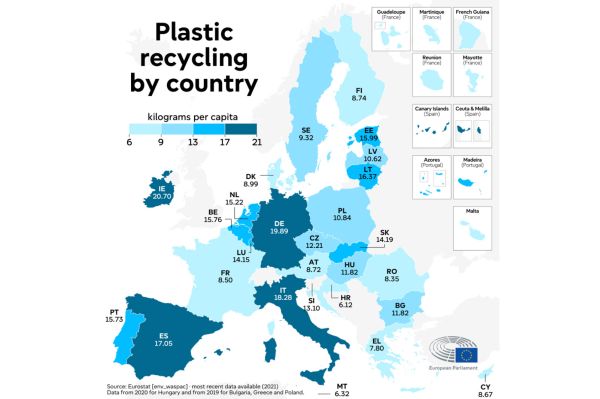
Matt O'Keeffe
Editor
Another solution to a problem that didn’t exist

The imposition of a tax on cans and plastic bottles, requiring consumers to queue up at depositories to get that tax back, was generally accepted without analysis or criticism. This additional task to the daily grind was accepted meekly by a compliant public, afraid to be seen as less than enthusiastic about saving the planet one aluminium can at a time.
We have the highest recycling figures in the EU for plastic bottles, cans and, as it happens, silage covers. Despite this, a tax was placed on these household waste items resulting in consumers having to bring them back to a depository, to receive a voucher, which they can only redeem in the adjacent shop. Consumers already pay a fee to have their recyclables collected. This entails sorting compostables and general rubbish from recyclable materials, including, importantly, plastic bottles and cans. Consumers still pay the same fee for this service, even though they no longer put cans or plastic bottles into the recycling bins. Now they must sort these into another container, load the container onto the bike, into the car, or carry them on the bus, and bring them to a depository to secure a tax refund.
Insult to injury
To add immense insult to injury, the recycling agencies/collectors are, justifiably, demanding an increase in bin collection charges. This is because the recycling-bin contents they collect are less valuable to them as the bins no longer contain as much recyclable material that can, in turn, be sold on for a profit. The additional charge proposed by the bin collection companies would cost consumers an additional €2.50 per month or €30 per annum. This is another addition to living expenses which can be ill afforded by many families. What is even more galling is the fact that the burden is being placed on households that already recycle their cans and plastic bottles. Does anyone really believe that those who discard their cans and bottles on the streets and roadsides will learn the error of their disgusting littering practices because of a tax on the cans and plastic bottles portion of that litter? Despite reports of lower litter levels since the new recycling tax was introduced, casual observation tells another story of continuing littering practices by those who have no respect for themselves or their surrounding environment. In all likelihood, any decrease in the level of can/bottle littering can be apportioned to some of those who live on our streets garnering a small income from picking up these tax-returnable compostables. That hardly represents an argument in favour of the new tax.
Investing in increased litter compliance measures and anti-littering campaigns would be far more useful than taxing everyone for the sins of a few. #EnoughisEnough stretches far beyond the grievances of the farming community regarding over-regulation and compliance costs. It is not as if our recycling record is below par with EU targets. Repak reported that up to July 2023, Ireland had annually met and exceeded all EU recycling targets over the past quarter of a century. Plastic recovery was 32.7 per cent, a full 10 per cent above target. Metal recycling, including cans, was 69 per cent, well above the 50 per cent EU target. Likewise, Irish glass and wood recycling easily exceeded European targets. We have seen incremental recycling improvements every year, with 1.1 million tonnes of packaging recycled in 2022, an increase of 9 per cent on the previous year. So, where exactly is the problem the latest tax imposition is seeking to solve?





